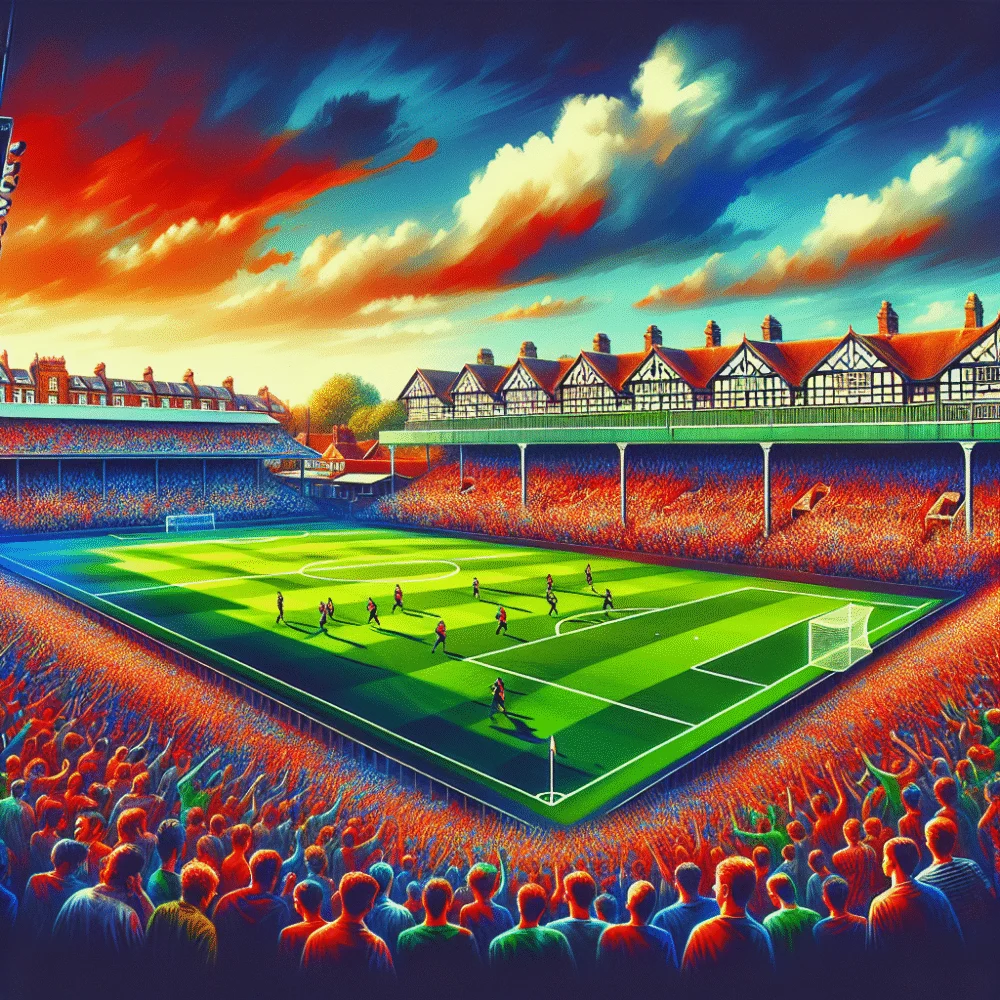Fulham is a name that resonates with many, especially those who have an affinity for football and its rich history. Nestled in the heart of West London, the area of Fulham boasts a vibrant community that has evolved over the years while still preserving its traditional charm. This article will explore the significance of Fulham in various contexts, from its historical roots to its cultural impact, all while highlighting the undeniable importance of football in this district. The history of Fulham dates back to the Saxon era, and it has witnessed significant transformations over the centuries. Originally an agricultural area, it transitioned into a suburban neighborhood in the 19th century, largely due to the expansion of the Victorian housing industry. Many stunning Victorian houses line the streets, drawing attention to the architectural beauty of the area. Segueing into the present day, Fulham is predominantly recognized for its football culture. The home of Fulham Football Club, one of the oldest professional football clubs in England, the neighborhood has become a hotspot for fans. Craven Cottage, the club’s stadium, is famous for its picturesque location along the River Thames, enhancing the matchday experience for locals and visitors alike. The passion of Fulham fans is palpable, making attending a game here a must for any football enthusiast. Beyond football, Fulham is a hub of cultural activity. The area is dotted with a variety of parks, art galleries, and theatres. Local establishments, such as the renowned Fulham Palace, offer historical insights and picturesque gardens that attract visitors year-round. This palace, once a residence for bishops, is a testament to the rich heritage of Fulham. Moreover, Fulham is home to thriving markets and restaurants that showcase an eclectic mix of culinary delights. Eating out in this area can be an adventure in itself, with numerous cuisines available to tantalize your taste buds. From classic British pubs to trendy international eateries, Fulham offers something for every palate. In conclusion, the essence of Fulham transcends beyond just football and historical landmarks; it encapsulates a way of life for its residents — a blend of tradition and modernity. As such, Fulham continues to hold a special place in the hearts of those who know it well, attracting tourists and locals who wish to experience its charm firsthand. Moving on from the historical and cultural significance of Fulham, let’s delve deeper into the football scene and examine why it remains a focal point in the lives of many. The passion for football in Fulham runs deep, and its football club is more than just a team; it represents the community’s spirit and pride. Fulham Football Club, established in 1879, has a storied history that includes numerous ups and downs, performances in various tiers of English football, and significant moments that have shaped the club’s identity. One of the most remarkable aspects of Fulham Football Club is its unwavering commitment to the community. The club often engages in charitable initiatives that aim to foster local development and support youth involvement in sports. This dedication extends beyond the pitch, showcasing Fulham as not only a club but a cornerstone of the local community. The venue, Craven Cottage, has become iconic, holding a unique charm with its historic riverside location and traditional wooden pavilion. The stadium holds a special place in the hearts of fans who come together, creating an electrifying atmosphere during matches. The sight and sounds of a matchday at Craven Cottage reflect a sense of community and belonging, simply highlighting the role that football plays in Fulham’s social fabric. In addition to the on-field action, the club’s loyal supporters play a significant role in the club’s identity. Whether through chants echoing in the stands or waves of enthusiasm that ripple through the crowd, Fulham fans create an unforgettable matchday experience. Rivalries with local clubs, such as Chelsea and QPR, add an extra layer of excitement and competition, fueling the local footballing spirit. Furthermore, as the football landscape continues to evolve, Fulham Football Club has adapted to the changes while retaining its core values. The club’s commitment to promoting youth talent through its academy system illustrates a focus on nurturing the next generation of footballers, ensuring that the legacy of Fulham continues for years to come. As we look towards the future, it is essential to recognize the socio-economic impact that Fulham Football Club has on the local area. By attracting visitors and providing entertainment, the club contributes to the local economy and aids the growth of local businesses. Matchdays significantly boost foot traffic, which in turn invigorates the local hospitality sector, from pubs to restaurants, further embedding the club within the community. In summary, football unites the residents of Fulham in ways that go beyond the sport itself. It fosters community engagement, pride, and local economic growth. Whether you’re a die-hard fan or a casual observer, experiencing a match at Craven Cottage is a joyful immersion into the essence of Fulham. In conclusion, Fulham serves as a microcosm of culture, history, and sports intertwined into a vibrant narrative. The relationship between the community and Fulham Football Club exemplifies this connection, illustrating how a love for the beautiful game can enrich lives and foster a strong sense of belonging. Thus, Fulham stands not only as a geographical location but as a symbol of unity, pride, and passion for football — one that continues to evolve while holding onto its rich legacy.










